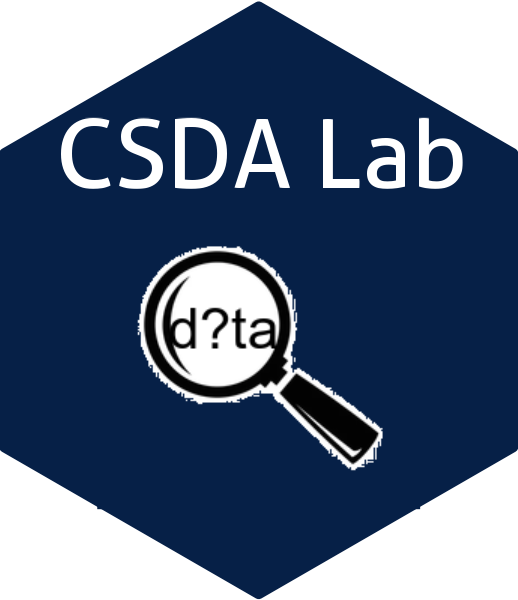CSDA Lab Research Guidelines & Agreement

Welcome to the Computational Statistical and Data Analytics (CSDA) Lab! This will be a fun and rewarding experience for all of us. This document provides guidelines and agreements for students participating in laboratory research related to Mathematics, Statistics, and Data Science. By participating in the lab activities, you agree to adhere to these guidelines.
Purpose: The lab’s primary goal is to foster a conducive environment for learning, exploration, and hands-on experience with various mathematical and statistical models, techniques, and tools used for data analysis.
General Guidelines:
-
Safety First: Although we work mainly with data and software, we ensure that all electrical equipment is handled safely.
-
Attendance: Regular attendance during lab meetings is crucial. Inform your Advisor in advance if you cannot attend.
-
Collaboration: Collaboration is encouraged, but ensure you understand and can replicate the results independently. Always credit collaborators in your reports and presentations.
-
Backup Your Work: Always have a backup of your data and findings. Utilize UWF Google Drive.
Data Handling and Management:
-
Data Confidentiality: Any data provided by the lab or external sources must be confidential. Do not share or distribute data without proper authorization.
-
Citation: Always credit the source of the data you’re working on. Ensure that any public domain datasets are properly referenced.
-
Data Integrity: Do not manipulate or alter data in a way that would misrepresent the information.
Research Ethics:
-
Academic Honesty: Plagiarism will not be tolerated. Ensure all work submitted is original and any external sources are properly cited.
-
Objective Reporting: Report your findings objectively, without bias. Do not exaggerate or minimize results to fit a particular narrative.
-
Peer Review: Respect feedback from peers and instructors. Constructive criticism is crucial for growth.
Project Submission:
-
Deadlines: Adhere to project submission deadlines. Extensions may be granted on a case-by-case basis.
-
Documentation: All projects should be accompanied by clear documentation, which includes objectives, methodologies, data sources, findings, and conclusions.
-
Presentation: Students may be required to present their findings. Ensure your presentation is clear, concise, and well-organized.
-
Co-authorship: We aspire for every student working in the lab to be part of a scientific publication and/or presentation. The lab’s co-authorship policy necessitates a substantial contribution to at least 2 (and frequently 3) of the project stages outlined below:
- Initiated the project with an original idea (e.g., crafted a proposal, secured funding).
- Undertook major tasks, ran simulations, and managed data.
- Analyzed data and inferred findings to a degree that enables manuscript drafting.
- Brought a manuscript, poster, or talk to its final, publishable state (e.g., drafting, editing, creating visuals).
To be considered for the first author, a significant contribution to a minimum of 3 stages mentioned above is required, especially emphasizing stage (4). If you aspire to be the first author, please engage in a dialogue with me from the project’s inception. Do note that authorship roles might be revised for incomplete projects. Minor or sectional contributions to a project may earn you a mention in the Acknowledgements section.
10 things that take zero talent, but will get you far:
- Being on time
- Strong work ethic
- Effort
- Body language
- Energy
- Positive attitude
- Passion
- Being coachable
- Doing extra
- Being prepared
Agreement:
By signing below, you acknowledge that you have read, understood, and agree to abide by the guidelines and stipulations mentioned in this document.
Student’s Name (Printed) Date
Student’s Signature
We hope these guidelines will provide a foundation for a productive and respectful learning environment. Best of luck in your research endeavors!